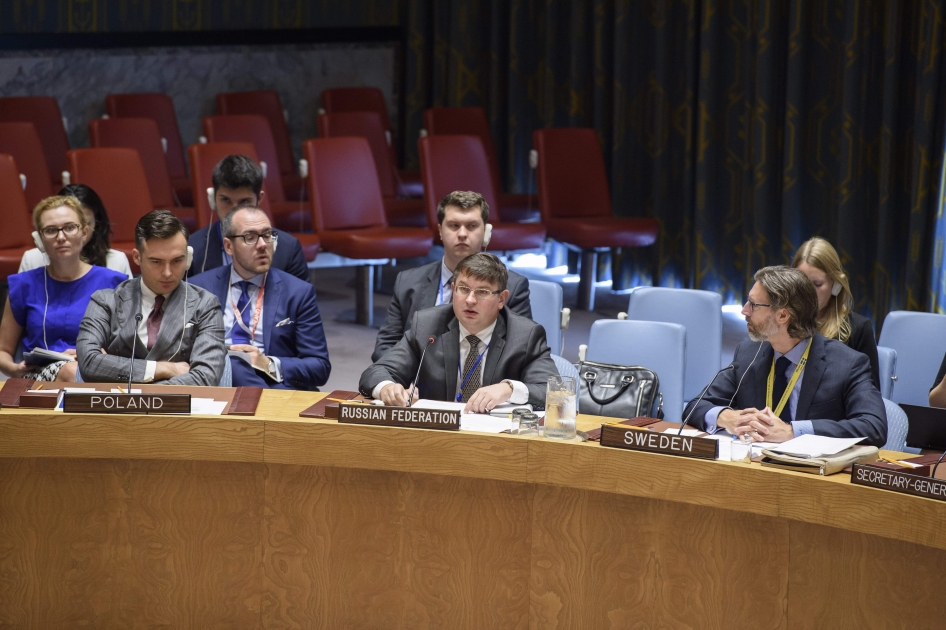Statement by the Representatibe of the Russian Federation, Mr.Alexander Repkin, at the Security Council meeting on Burundi
We would like to thank Special Envoy of the Secretary-General Michel Kafando for his briefing on the developing situation in the country.
We regret that, unfortunately, today the Security Council could not listen to the Permanent Representative of Switzerland, Mr. Jürg Lauber, Chair of the country-specific configuration of the Peacebuilding Commission (PBC), which remains a channel for reliable communication with Bujumbura.
We support the PBC’s efforts to revitalize cooperation with the Burundians by discussing issues related to the socioeconomic development of the country and by re-establishing donor confidence. We continue to receive information from Russian colleagues — our diplomats in Bujumbura — according to which the situation in the country remains generally calm.
The genuine security situation in Burundi is evidenced by the fact that the country continues active inter-parliamentary contacts. Opposition politicians as well as refugees are continuing to return to Burundi. The Government has released more than 2,000 political prisoners in the framework of the ongoing national reconciliation process. In evaluating the political situation in Burundi, we would like to point to the peaceful atmosphere in which the constitutional referendum was held on 17 May.
We note the impressive, virtually unprecedented voter turnout for an African country, and the support expressed for the constitutional changes by a large majority of those who voted, as well as the fact that this expression of the people’s will was preceded by a democratic and transparent propaganda campaign. It is also important that the country’s new Constitution, adopted on 7 June, retains all the elements of the Arusha Peace and Reconciliation Agreement, including those concerning ethnic quotas in Burundi’s governing institutions. We want to point out that the current President of Burundi, Pierre Nkurunziza, has declared his willingness to support his successor when his second presidential term ends in 2020.
In that regard, we are not in full agreement with the alarmist assessments of the internal political situation in Burundi voiced by a number of our colleagues today. They are clearly not taking into account the country’s positive momentum, which is a very good reason for taking it off the Security Council’s overloaded agenda.
We get the impression that instead of trying to improve our collaborative efforts, our colleagues are openly playing up to the radical Burundian opposition. We proceed from a belief in the impermissibility of outside interference in Burundi’s internal political processes, and we are opposed to mentoring and the imposition of off-the-shelf recipes on sovereign States for solving complex socioeconomic and political problems.
